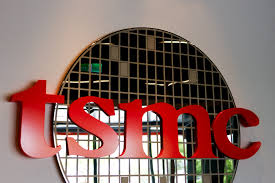TSMC has stopped supplying production to China-based Sophgo, which is believed to be a proxy that Huawei used to make its Ascend 910B. The decision is directly connected with the recent discovery that TSMC supplied Huawei via a proxy despite the U.S. export restrictions.
Sophgo had ordered a chip (allegedly called the Ascend 910B) from TSMC that closely resembled the Ascend 910 processor originally made by TSMC. TechInsights uncovered the ‘close resemblance’ and issued a paper detailing that the chip was indeed manufactured by TSMC and not by SMIC, as reported at some point previously.
In response to the halt, Sophgo reportedly issued a statement asserting that it fully abides by all legal requirements and maintains no direct business links with Huawei. The company, which has ties to Bitmain, a well-known cryptocurrency mining equipment producer, also conducted an internal investigation. To clarify its position, Sophgo submitted a report to TSMC, aiming to confirm it was uninvolved in any unauthorized transfer to Huawei.
The U.S. Department of Commerce acknowledged it was aware of reports that U.S. export restrictions might have been breached but declined to comment on any ongoing investigation. Sophgo’s supply chain connections have therefore attracted scrutiny due to potential risks around export control violations, though the department refrained from addressing specific case details.
Huawei’s attempt to manufacture a chip through TSMC reflects a larger strategy to continue leveraging Western-designed technologies. The company often conceals its chip suppliers to avoid potential conflicts with its partners if any suppliers are cut off, which is exactly the case for now. One method of Huawei’s circumvention of sanctions employs purchasing chips or wafers indirectly, using third parties to secure the necessary components, and then obscuring these connections through various tactics.
We debated, in the Tom’s Hardware newsroom, whether this approach might be feasible for advanced processors like Huawei’s Ascend or Kirin – yet here we are. Proxies work and only one has gotten caught.



